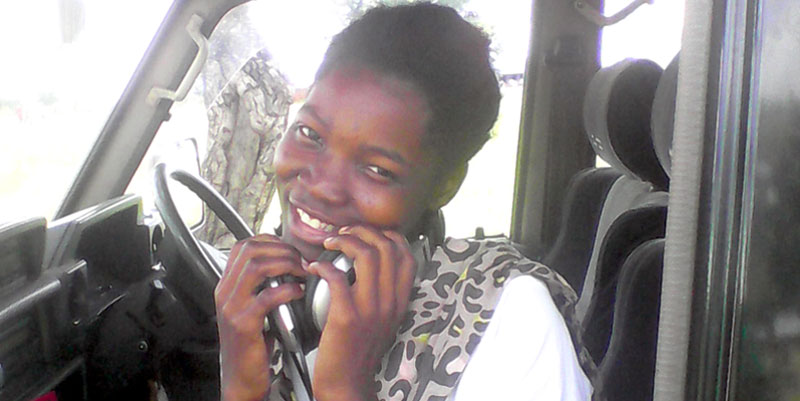News
Actress Zainabu Adongo warms up for training in Climate Reporting
Usually, when we want something, the only option we have is to go for it with the hope that things will turn out for the better. This is exactly what Zainabu Adongo, 23, did when she became a news reporter a year ago for Radio Wa in the northern Uganda town of Lira.
A producer of drama programmes with Radio Wa since 2012 and an actress with Rising Voices’ Theatre Technology House in Lira from 2014, Adongo decided to venture into journalism to report on issues that impact on her community.
After being selected by the Uganda Science Journalists Association (USJA) to participate in the upcoming Understanding Climate Change through Journalism (UCCJ) workshop in Gulu town, Adongo feels this a big opportunity at the right time.
“I have always wanted to report on issues that impact my community-issues of health, education, the environment. This is an opportunity for me to get trained in reporting on the environment. I can’t wait to be in Gulu for it,” Adongo says.
Looking at the aim of the workshop, this is exactly what the USJA had in mind when it penned the UCCJ project concept, training people like Andongo so that they can help their communities understand Climate Change.
The USJA had discovered that there were many journalists in rural areas of Uganda who reported on issues of science without the basic training in science journalism.
“We want to build capacity of journalists living and working with rural communities to enable them interpret science as well as enjoy it. We want to give them the necessary skills so that they can do a good in their reporting. We want to make them conscious that what they are doing is science journalism, and they can do it better,” says William Odinga Balikuddembe, President and CEO, USJA.
This workshop, to take place August 14 -17, 2016, is the first of three workshops to be managed by USJA under the UCCJ project. The other two are to be held in October and November in Eastern and Northern Uganda respectively. The UCCJ project is financially supported by Internews and the Oak Foundation.
Balikuddembe says that the project intends to bring to light challenges arising from climate change and variability that are faced by rural smallholder farmers in Uganda by empowering rural-based journalists to report effectively on those challenges.
“Uganda is predominantly an agricultural economy. Over 80 percent of the country’s population is dependent on farming as a source of employment and livelihood. Most Ugandan farmers, however, are smallholder. Given that 99 percent of Uganda’s agriculture is rain-fed, nearly all the farmers are exposed to the vagaries of weather,” Balikuddembe says in a statement issued August 3, 2016, in Kampala.
“In recent years more frequent harsh weather conditions such as floods and prolonged droughts have battered millions of poor farmers. They have witnessed increased crop failure due to increased flooding, delayed rains, and an increase in the prevalence of crop diseases,” the statement adds.
Balikuddembe says that subsistence agricultural production, coupled with inadequate knowledge among most rural farmers on the impacts of climatic changes, has rendered most of the farmers highly vulnerable to losses caused by climate change and variability.
“We believe that increased awareness about climate change will enable farmers find ways of successfully adapting to the situation. The journalists’ ability to comprehend climate change information will enable them communicate appropriate adaptation strategies, techniques and technologies to their communities,” Balikuddembe says. “Increased awareness should also trigger action towards the adoption of better policies and practices at national as well as local levels.”
Over 30 upcountry journalists are to receive training in science journalism and climate reporting through the UCCJ project this year.
Comments



















